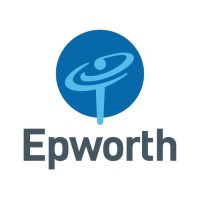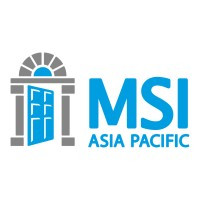Role Type: Part-time (0.6 FTE); Fixed term for 3 years
Faculty:Medicine, Dentistry and Health Sciences (MDHS)
Department: General Practice and Primary Care
Salary: Level B $122,212 to $145,121 per annum (pro rata for part time) plus 17% superannuation
- Contribute to vital research / Shape health system responses / Develop advanced qualitative skills.
- Apply now to advance your research career in sexual and reproductive violence early engagement and support.
- Investing in you - benefits package including salary packaging, health and wellbeing programs, discounted services, and professional development opportunities.
The University of Melbourne We take pride in our people, who all contribute to our mission to benefit society through the transformative impact of education and research. Discover more via our website and stay connected with our stories and people on LinkedIn.
Your next career opportunity As a Research Fellow in our sexual and reproductive violence programme, you'll have the opportunity to lead qualitative research projects and contribute to groundbreaking studies. You'll conduct in-depth interviews, analyse data, and contribute to the development of models to guide health systems change. Opportunities to lead quantitative data analyses will also be available if you have statistical skills. Your work will directly impact support for survivors of sexual assault, reproductive coercion and intimate partner violence. You'll also have the chance to contribute to academic publications and reports, shaping policy and practice in this critical field.
Your responsibilities will include: - Lead qualitative research: Conduct interviews, analyse data, and synthesise evidence.
- Contribute to academic outputs: Write ethics applications, academic publications, reports, and papers for various stakeholders.
- Manage research projects: Coordinate day-to-day project activities and contribute to the SAFE programme and RESTORE Centre of Research Excellence.
- Apply trauma-Informed principles: Utilise trauma-informed research techniques in all aspects of your work.
You may be a great fit: You are a dedicated researcher with strong qualitative or mixed-methods skills, a keen interest in sexual and reproductive violence research, and a commitment to trauma-informed practices.
You may also:
- Hold a PhD or Master's degree in a relevant social science or health discipline.
- Have experience in qualitative research design, interviewing, and analysis.
- Possess excellent project management and communication skills.
- Demonstrate a track record of research publications and presentations.
- Have experience in writing ethics applications and grant proposals.
- Be proficient in using qualitative analysis software and Microsoft Office.
What we offer you! We offer the opportunity to be part of a vibrant community and enjoy a comprehensive range of benefits to support your success and sense of fulfillment, including:
- Supportive flexible work arrangements underpinned by our commitment to inclusion and well-being.
- Progressive, considerate leave provisions to empower your work-life balance.
- Salary packaging and access to a range of discounted services including Bupa health insurance.
- Health and well-being services including a leading Employee Assistance Program.
For more information check out our benefits page!
Your new team - Sexual and Family Violence research program and RESTORE CRE. The Sexual and Family Violence (SAFE) research program sits within the Department of General Practice and Primary Care. The DGPPC are national leaders in primary care research and education, with diverse research themes driving healthcare advancement in a range of areas. The SAFE multidisciplinary research program aims to improve the safety, health and wellbeing of women, families and communities by addressing problems of family and sexual violence through early engagement, particularly in health settings. We value and centre lived-experience. Using mixed methods, our focus has been on understanding the dynamics of violence; the links between violence and health; development and testing of interventions for screening, early identification and responses for women, children, young people and men, including the use of technologies.
The NHMRC RESTORE Centre of Research Excellence is one of two Centres led by the SAFE team. The RESTORE Centre aims to promote healing from sexual violence and lead research into the health effects of sexual violence and how to transform the health sector to effectively respond. The RESTORE Centre brings together a diverse team of investigators, program scholars and numerous associates internationally with expertise in a range of health, clinical and social sciences.
Be Yourself The University of Melbourne is an Equal Opportunity Employer and a child-safe organisation. We are committed to creating an inclusive and equitable workplace where all individuals feel valued, respected, and have the opportunity to thrive regardless of gender identity, ethnicity, sexual orientation, disability, age, being a parent or having caring responsibilities.
The University of Melbourne is committed to fostering a barrier-free and inclusive recruitment process. We are dedicated to providing reasonable adjustments for candidates throughout the application and interview stages, including accessible document formats and alternative application methods. To discuss your specific requirements, please feel free to contact Bec Tucker - 0478 269 660 or send an email titled 'Reasonable Adjustments' to
hr-careers@unimelb.edu.au. You can find more information for applicants requiring reasonable adjustments on our Careers website: https://about.unimelb.edu.au/careers.
Aboriginal and Torres Strait Islander Applicants We aspire to be the University of choice for Indigenous Australians, with unprecedented investment to attract, nurture and retain Aboriginal and Torres Strait Islander students and staff. Tangible support through a range of programs and initiatives will ensure that you personally succeed and flourish while at the University of Melbourne.
For further information, including our 2023-2027 Indigenous strategy please visit -https://about.unimelb.edu.au/reconciliation/murmuk-djerring
If you are a member of an Aboriginal and/or Torres Strait Islander community and would like any support, please feel free to contact our Indigenous Employment & Development team via email at oied-hr@unimelb.edu.au.
Working at the University - what you need to know This role requires the successful candidate to maintain a Working with Children Check The successful candidate can apply for the WWCC as part of the onboarding process. In the case the selected candidate doesn't have a valid Working with Children Check, they will be able to apply for the WWCC as part of the initial onboarding procedures.
Please note: Visa sponsorship is not available for this position. This role requires current valid work rights for Australia.
Join Us and unlock your career potential! Is this the perfect opportunity for you?
Apply today! Including the following documents:
- Cover Letter outlining your interest and experience
- The responses against the Selection Criteria (found in the Position Description)
For information to help you with compiling short statements to answer the selection criteria and competencies, please go to http://about.unimelb.edu.au/careers/selection-criteria.
If you have any questions regarding the recruitment process, please feel free to contact Dijana Pourgoutzidis via email at hr-careers@unimelb.edu.au, ensuring that you include the Position Number and the Job Title as the subject.
Please do not share your application to this email address. Applications close: Thursday, 11 September at 11:55 PM Australian Eastern Standard Time (AEST) / Melbourne time zone.
If you have any particular questions regarding this position please follow the details listed on the Position Description.
Position Description: Research Fellow - Sexual & Reproductive Violence





